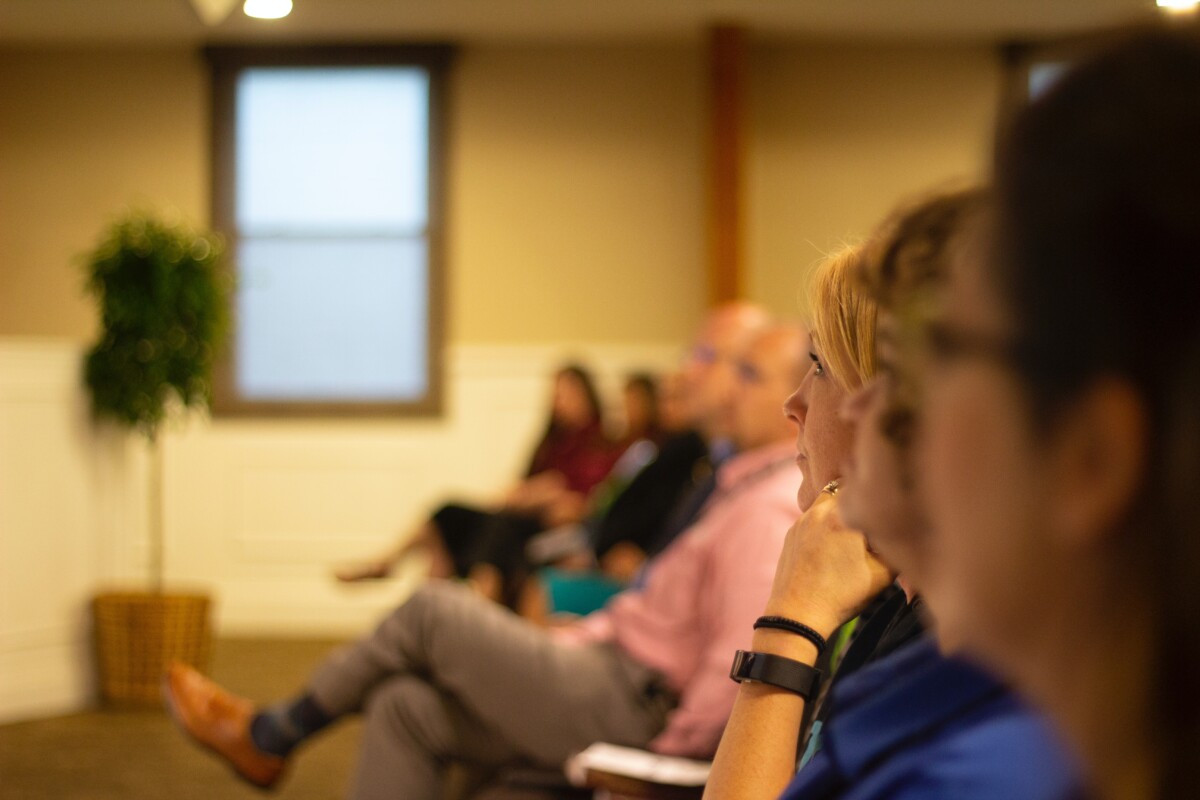The changing face of fundraising conferences
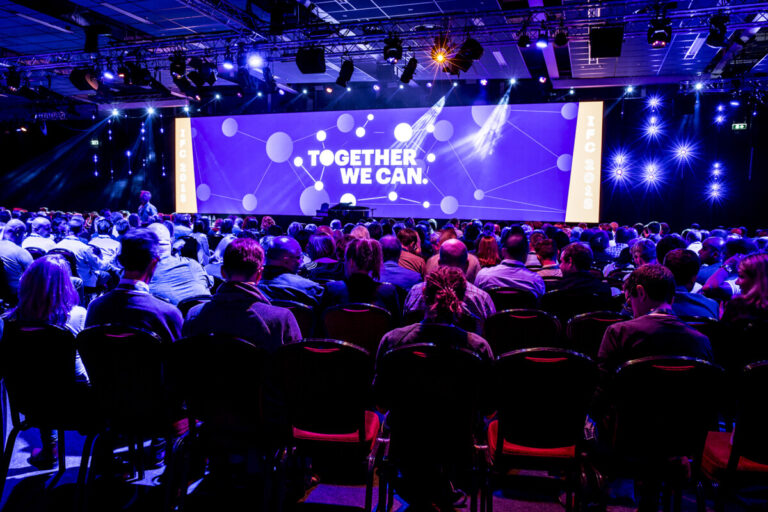
The long read: how today’s conference organisers are developing their events to meet fundraisers’ requirements.
Fundraising conferences, like other in-person events, have seen quite some changes in recent years. First the pandemic’s restrictions forced them to stop or go virtual. Then, as things started opening up again, some remained online, while others took a hybrid approach, enabling those willing and able to attend in person to do so, whilst ensuring others didn’t miss out.
Roll forward to 2022, and the hybrid approach remains popular among event holders and participants alike. But accessibility isn’t all fundraisers want from events – flexibility, affordability, high-quality content for all sizes of charity, diversity of speakers and attendees, and good networking opportunities are all important.
Advertisement
So how are fundraising conferences changing, what do they need to do better, and how are organisers developing their events to meet fundraisers’ needs?
The faces behind some of this year’s events – Resource Alliance’s IFC 2022, Smee & Ford’s Legacy Strategy Summit 2022, GivePanel’s Social Fundraising Summit, the CIoF Scottish Fundraising Conference, FundraisingEverywhere’s conferences and webinars, Charity Finance Group’s Annual Conference, and Hospice UK’s Hospice Fundraising Leaders Conference – share their thoughts, plans and experiences.

Smee & Ford Legacy Strategy Summit 2022
Smee & Ford Legacy Strategy Summit 2022 was a one-day digital event, which took place on 14 June.

Suzanne Watts, Senior Events Producer, Smee & Ford
How are conferences changing and what are the drivers?
Up until 2019, they were traditional affairs – networking breakfasts, formal lunches, and wine afterwards. The attendance cost would be considerable, and when travel and hotel stays were added, the price of one day of training could run into the thousands.
Like many events companies, we made the leap into virtual events from April 2020 onwards. Our face-to-face events attracted 99% UK based charities – now our virtual formats allow people in many time zones to enjoy the content when it suits them, and a far wider range of voices to be heard. Our Legacy Strategy Summit had delegates from South Africa, Australia, Canada, Japan, and most European countries, as well as the UK.
Convenience and accessibility are big factors – for delegates and speakers. They want to fit a training day or conference into their working week rather than take two or three days away from the office. Virtual events often mean the delegate can watch a few live sessions on the day, then catch up on anything they missed in the days or weeks to come. For LSS22 we had live content but also pre-recorded sessions available online before the event, as well as downloadable content.
What was front of mind for you in developing #LSS22?
This year we invested more in the delivery and technology behind the event. Using a platform called Swapcard meant attendees could network, have one-to-one meetings or group chats, view and download on-demand content, and have a much more interactive event experience overall. This was new for the event.
As far as content, I wanted to look beyond recovering from the Covid crisis and instead offer sessions that provided in-depth learning and inspiration for the various sizes of legacy teams and charities that join our events. We looked at topics that ranged from setting up an international legacy marketing strategy, to a holistic audit of online campaigns, and legacy team recruitment.
What are you doing to ensure a diversity of voices and topics?
When developing the agenda, we call on a range of hands-on experts. Diversity of voices and topics is a subject we take very seriously and make a priority in these discussions.
Size of legacy team can vary greatly, and our speakers represent charities with incomes from £500k to £300million. Our event attendance is now truly international – our sessions often compare the approach and style of legacy giving in different countries, and we see the value their perspectives bring to the event.
We also reflect the age range of the legacy charity sector – it really is one that people join and then stay in. At our recent event we had a speaker with 50 years’ experience in the sector, after starting at Oxfam in the 1960s, and one who had been in legacies for just 6 months – both had valid viewpoints to bring to the discussion.
FundraisingEverywhere & Everywhere+
FundraisingEverywhere runs and hosts online conferences, webinars and events – this summer including the Small Charity Virtual Conference, and BAMEOnline – and helps charities run their own through its Everywhere+ online hosting platform.

Nikki Bell, Co-founder, FundraisingEverywhere & Everywhere+
How are conferences changing and what are the drivers?
For charity teams, we’re seeing continued use and refinement when using virtual conferences with staff and donors, especially for training or stewardship events.
Shorter events like webinars, Q&As, and tours that aim to connect and inspire have a big impact on reach and growth, with larger events deepening relationships and building trust. We’re also experiencing a rise in charity teams utilising virtual conferences for internal audiences with 83% of charities using them for staff training beyond 2022.
What do they need to do better?
For fundraisers to have equitable access to learning and networking opportunities, there needs to be a virtual offering. This can be achieved by outsourcing to professionals for virtual/event management, adapting in-person events to free up capacity and budget, or hosting in-person and virtual at different times.
Virtual access offers wider benefits that support wider sector issues including environmental impact and diversity by allowing fundraisers to join in from wherever they are in a way that’s comfortable and accessible for them.
Fundraising Everywhere pays all of its speakers and has transparent and published EDI goals. By doing so we are able to platform a wider range of voices and ideas that give learners the full spectrum of learning and innovation that’s available to them – we want all conference providers in our sector to follow suit.
How are you developing Fundraising Everywhere?
We’re constantly monitoring trends and event feedback to help shape and support people accessing events. We want to move this to an even more collaborative way of working by giving the control to members and enabling them to pick themes and content. We have recruited our first Community Manager, Mandi Hine, to make this collaborative way of working a reality!
We’ve also just launched our Organisational Membership to shake up how whole charities can learn and attend events with one-price, no further cost, access that all staff can access anywhere, on-demand, and continuously.
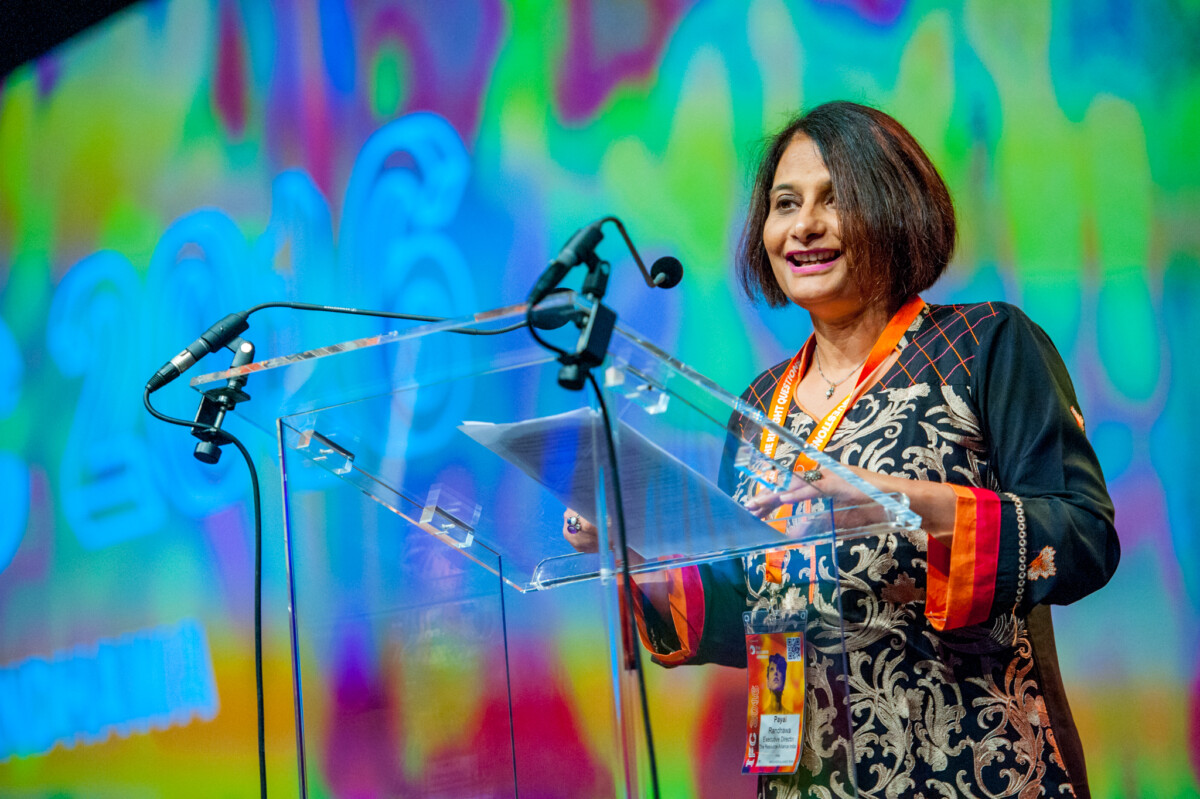
Resource Alliance IFC 2022
Resource Alliance’s IFC is in its 40th year, and returns in-person (as well as online) in October for the first time since pre-pandemic.

Willeke van Rijn, CEO, Resource Alliance
How are conferences changing and what are the drivers?
Fundraising has become about so much more than raising money and this is reflected in how conferences are structured and promoted now as well as in things like programme development. Key considerations are content, collaboration, solidarity, and the understanding that we have a responsibility to shift the power.
Conference content must acknowledge that, though the sector is raising more money than ever, we are not having a sufficient impact when it comes to ending poverty, responding to humanitarian crises, tackling climate change, and more. We need to find, create, and present new solutions to strengthen our sector’s impact.
As fundraisers, we must learn from our colleagues all over the world. Those of us creating and curating learning events around fundraising must facilitate that learning and move toward equity in our sector.
What do they need to do better?
We all have to attract new audiences, both within our sector and beyond – social impact organisations don’t exist in a vacuum and working together will strengthen us all. We want to trigger new thinking in everything we do as well as share best practices.
Diversity, of course, is high on the agenda. This is not a new consideration for us at IFC but there is always room to do better and in our globally connected world it is more relevant than ever for our events to reflect our reality.
How are you developing IFC?
For IFC this year, we are working to create greater reach by presenting both digital and in-person options. Bringing IFC to a hybrid audience for the first time is a challenge for us, but it will make us stronger! At the heart of it, resource mobilisation is about people, and bringing IFC to a hybrid audience means we can make more of those vital connections than ever before.
Our theme for this year’s event is Shaping the Future Together: two years into the global pandemic, we can’t go back to the way things were. We are working on new sessions based on cocreation, with a solutions-driven approach to tackle the wider challenges and big issues we are all facing. We will have roundtable discussions designed to create impact with a deep focus on collaboration.
As well as the new cocreation aspect and innovation hubs, we will still have our keynotes, Big Room sessions, masterclasses, and workshops. However, it is our aim to have clear actions coming out of IFC, with working groups created with delegates who want to keep the connection going and really do more.
This is the fortieth year of IFC and we need to challenge ourselves on our duty, our roles, and our impact, and consider how we accelerate change. At IFC 2022, we will be starting our journey of change together, doing things a little differently, keeping the tried and tested, and pushing some boundaries.
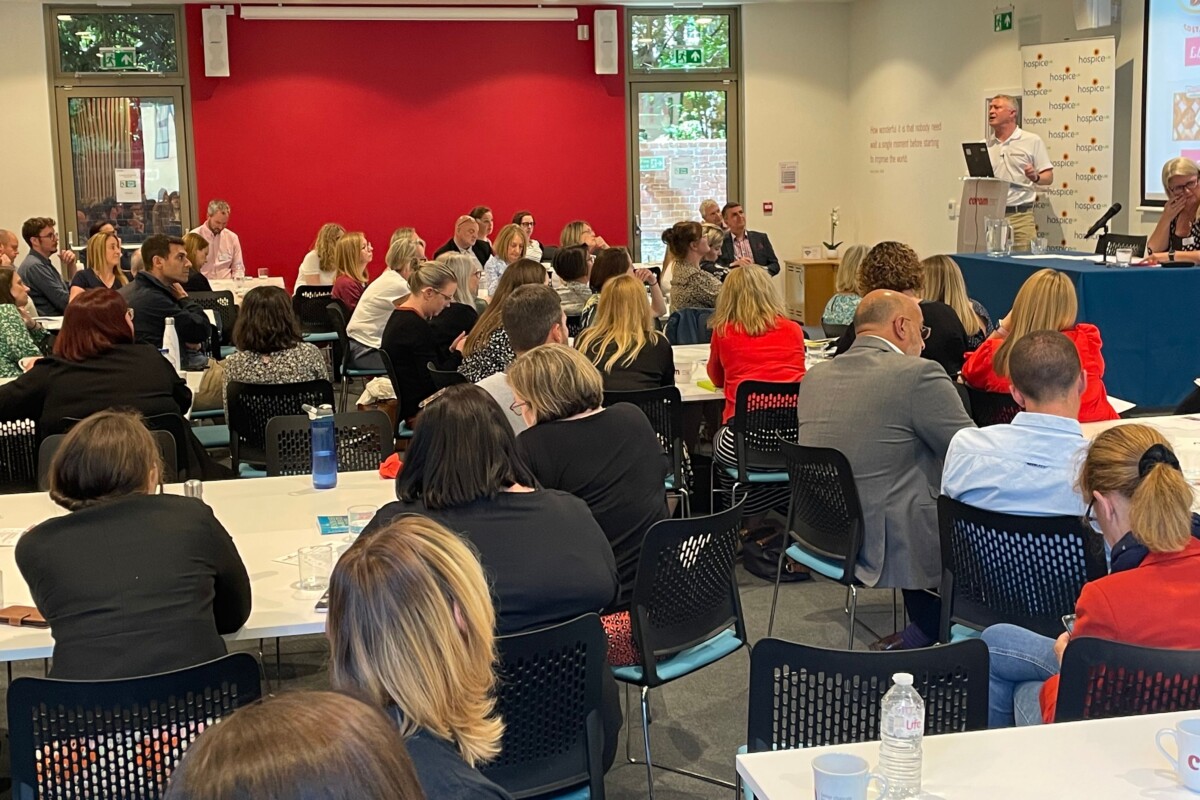
Hospice UK Hospice Fundraising Leaders Conference
Hospice UK held its first Hospice Fundraising Leaders Conference this month. A one-day conference held in London, it will become an annual event.
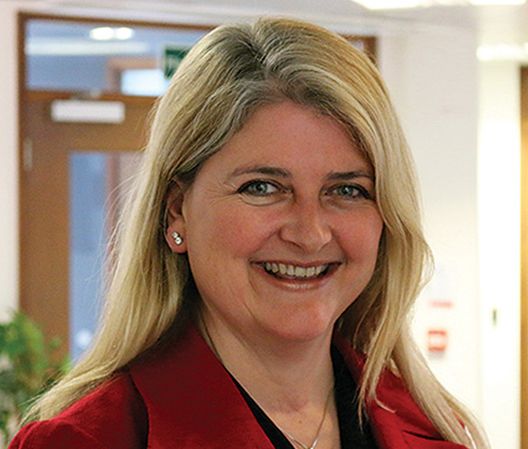
Catherine Bosworth, Director of Income Generation, Hospice UK, & Conference Chair
How are conferences changing?
We’ve historically run a big in-person conference programme at Hospice UK for all types of colleagues working in the sector, from clinical colleagues through to fundraising professionals. In the context of the pandemic, we’ve thought carefully about the mix of in-person and online events, and we’re still learning.
Last week’s conference did suggest a renewed appetite for getting together in person – there was a real energy and a fantastic atmosphere. But key for us is how this face-to-face event ‘interacts’ with our online offer. Lots of the delegates who attended are also part of our online fundraising network, which meets regularly. We want to work out how to encourage vibrant communities that meet online and offline, to maximise accessibility and ensure we get the advantages of both.
What do they need to do better?
People need more of a reason to spend funds to travel to an in-person conference. Networking is important, so events need to think carefully about how to facilitate meaningful interaction and engagement in each session. Engaging speakers with strong presenting skills are also key – just talking through a set of slides won’t cut it.
We’ve seen a shift in the content of our fundraising conferences too. Last week’s conference of course looked at the latest trends and developments in fundraising best practice, but we also talked about the wider trends and challenges facing fundraising leaders. A stronger focus on people, especially their development and wellbeing, feels increasingly important, and there is a real role for conferences there.
They also need to become more diverse. The hospice sector is not a sufficiently diverse space in terms of its staff base but our conferences and networks can and should play a part in driving that change. We are doing more to measure and assess the diversity of our conference delegates and network participants.
What was front of mind for you in developing your first Fundraising Leaders Conference?
We consulted with a number of senior hospice fundraisers through our online network to identify the key current and emerging themes. We thought carefully about the style and nature of the speakers, and how they structured their presentations. Thinking those things through and being conscious about those speaker choices is important.
Ensuring that we offer a mix of learning resources and opportunities is also important, from in-person conferences to online networks through to downloadable resources for people to read at their own pace and leisure.
Do you have any learnings to share from this year’s event?
I think we probably need to allow more time for facilitated discussions between delegates within the conference programme. One of the great advantages of working in the hospice sector is a willingness to share and we need to capitalise on this.
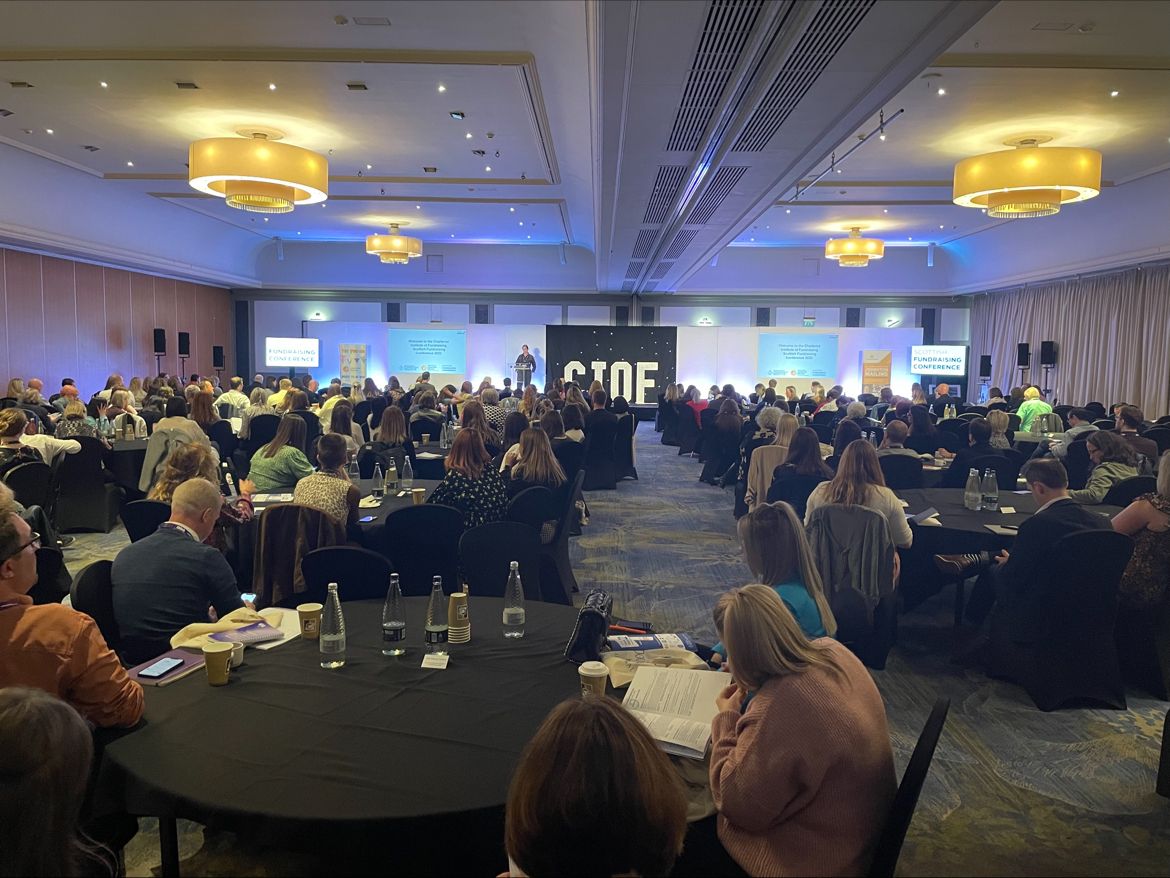
CIoF Scottish Fundraising Conference
The Chartered Institute of Fundraising’s Scottish Fundraising Conference returned to Glasgow this month for a two-day in-person event, for the first time since 2019 due to the pandemic.
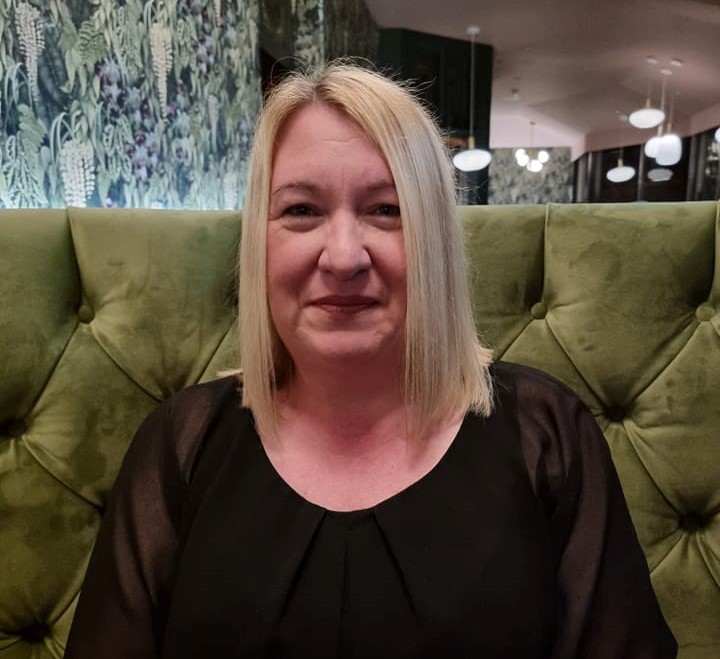
Susan Williams, Freelance Fundraiser, Susan Williams Consulting, & Scottish Fundraising Conference Joint Chair with Gary Kernahan
How are conferences changing and what are the drivers?
Cost has become an even greater consideration for people, and this, combined with the uncertainty of the past two years meant we saw a change in purchasing behaviour in 2022 with a number of people not booking tickets until closer to the event.
Affordability was already front of mind for us. The Scottish Fundraising Conference has grown significantly in recent years by making attending more affordable and adding additional value. Delegate prices have been frozen at 2017 levels, with a small charity discount introduced, volunteer places offered and bursary places available thanks to support from JustRunning. With more and more people entering the sector it is important to demonstrate to them what the conference can offer, so in October we ran a free launch event giving a taster of the programme.
What was front of mind for you in developing this year’s Scottish Conference?
For the organising committee it was offering a programme that was relevant. Our programme offered topics such as ethical recruitment and influence for female leaders, as well as case studies of charities who delivered excellent and innovative fundraising during the pandemic. It was also important for us to create space for connection. To assist with this, and as part of our first steps to reduce our environmental impact, an app was introduced, enabling delegates to direct message or start a live chat with one another.
The conference has had a free virtual offering since 2016 and we were keen to continue that in 2022, so this year we recorded the two plenary presentations, two ‘ask the expert’ roundtable discussions and a series of #AMinuteWith interviews – all available for free on CIoF Scotland’s social media channels. In addition, we had the Do More Good podcast with us again, who will be releasing a series of episodes, again free of charge.
How are you developing the Scottish Fundraising Conference?
It’s important that our programme and our speakers are reflective of Scotland. In 2022 we welcomed 77 speakers, of which 50 were speaking at the conference for the first time. Our annual public call draws attention to certain themes we are looking to cover and the committee work proactively to identify examples of good practice and approach people, who might not naturally put themselves forward, to speak.
Do you have any learnings to share from this year’s event?
This has been the hardest conference we have ever organised. The event was postponed twice previously, each time resulting in a huge amount of work for the volunteer committee to renegotiate, communicate and reschedule. We normally have a full year to work on the event but our organising window this year was much shorter. The dates were set in December 2021 but it wasn’t really until March 2022 that we became confident the event would go ahead. Buying habits changed too, with many delegates booking within the last 4 weeks, which was very different to previous years.
GivePanel Social Fundraising Summit
GivePanel’s Social Fundraising Summit took place in person back in March over two days, in Dublin.

Cat Cetnik, Head of Marketing, GivePanel
How are conferences changing and what are the drivers?
It’s been fantastic to see more and more virtual and hybrid conferences and events for fundraisers, driven by better and faster technology and the need to make training and development opportunities more accessible.
We see the future of events as being truly hybrid experiences which offer the best of both worlds and this is something we are looking forward to developing this for our customers at GivePanel.
How are you developing GivePanel’s events?
At GivePanel, we truly believe in the power of human-to-human connection, and this was at the forefront of our minds when planning our recent Social Fundraising Summit in Dublin. After working with our customers for a number of years but only having met them virtually, we couldn’t resist the opportunity to put on an in-person conference which allowed us to escape from our screens, get out of the office, meet new people and create deeper relationships. This was something that came out really strongly in the feedback with 90% of attendees saying they would attend a similar event in future.
Charity Finance Group Annual Conference
Charity Finance Group is taking a mixed approach this year with its Annual Conference Week, which take place this month. This includes an in-person event, and a series of online sessions and workshops.

Sarah Lomax, Director of Commercial, Charity Finance Group
How do you see conferences changing and what are the drivers?
We were acutely aware that Covid broke down geographical barriers as we all got online to meet, network and share. Returning to in-person events in one physical location means that many people might not be able to travel, or want to travel, virus or not. That’s why we have launched CFG’s Conference Week this year. In the lead-up to Annual Conference on 30 June we’re running a series of sessions online, so that location isn’t a barrier to accessing great speakers.
What do conferences need to do better?
The holy grail is the hybrid approach where anyone can access the conference on the day. However, for many charities, like ours, the technology cost can be a barrier. That’s where we really need to see some changes in the events industry.
When it comes to conference programming, you want to ensure there’s real depth and meaning to the conference experience and that delegates go away having learned as much as they can, met inspiring people and had some fun too! Networking is also key.
What’s been front of mind for you in developing this year’s CFG conference?
The main two areas of focus for us are inclusivity and risk. That’s why we’ve extended our programming to three days online, one day in-person. We’ve improved our website so it’s more accessible and added the Knowledge Hub where we’ll be sharing more content, more regularly. We’ve also invested in technology to make the event itself more interactive and easier for attendees to network, and connect with speakers, sponsors and exhibitors.
When we set out to develop this year’s Annual Conference, we had no idea where the pandemic was headed so we also looked at how we could help attendees feel more confident in terms of safety. For example, we discussed if there were any times during the year that attendees might be more comfortable attending. We also talked about venue choice and this year will be holding the conference at a new venue.
What are you doing to develop your event & ensure diversity of voices & topics?
We’ve always committed to ensuring everyone felt welcome and well represented at our events, but we wanted to make sure that was embedded in our processes too. We’re now collecting data on our speakers and monitoring diversity, and being more purposeful so we can be more empowering – the theme of this year’s conference!
We’ve thought about learning styles too and this comes back to accessibility, monitoring diversity (including hidden disability) and how we deliver. We know not everyone will attend an in-person event, so that’s why we’ve coupled investment in our digital tools with investment in our people and processes. This is such an important conversation to be having and we hope it continues so we can all learn how to deliver events that have even greater impact for an even greater number of people.




